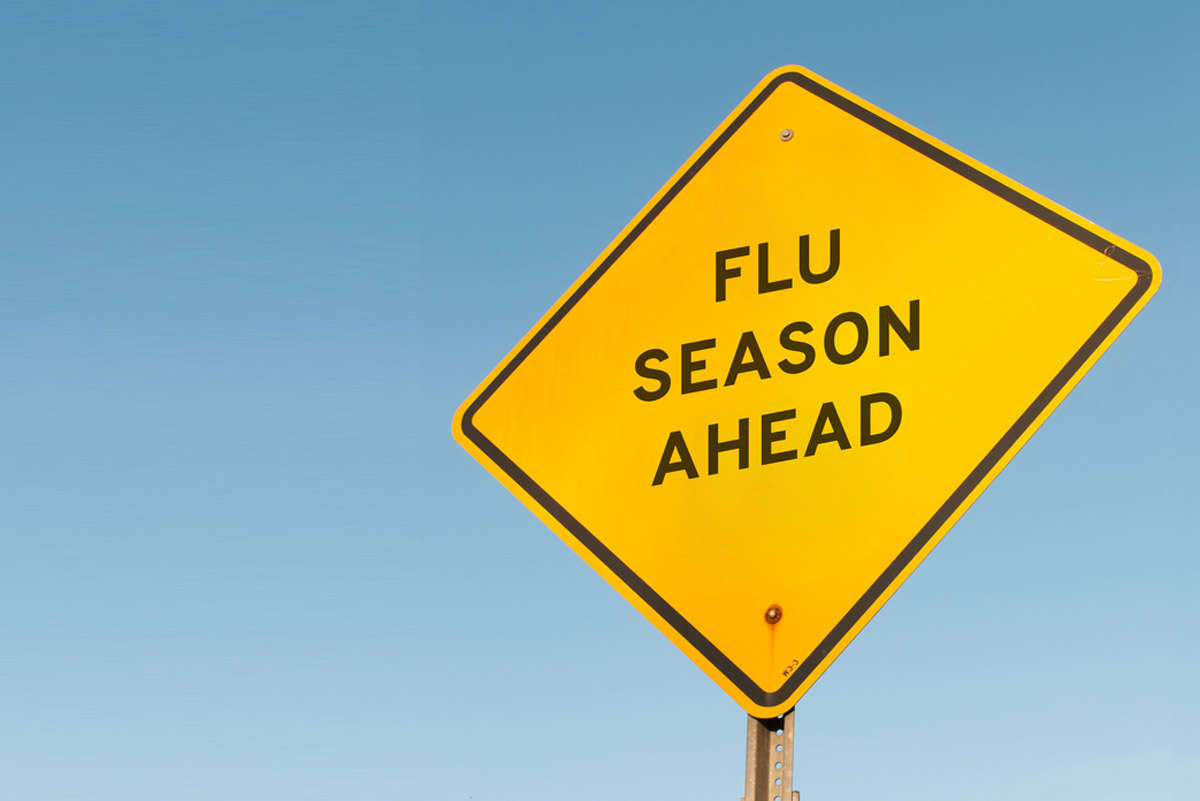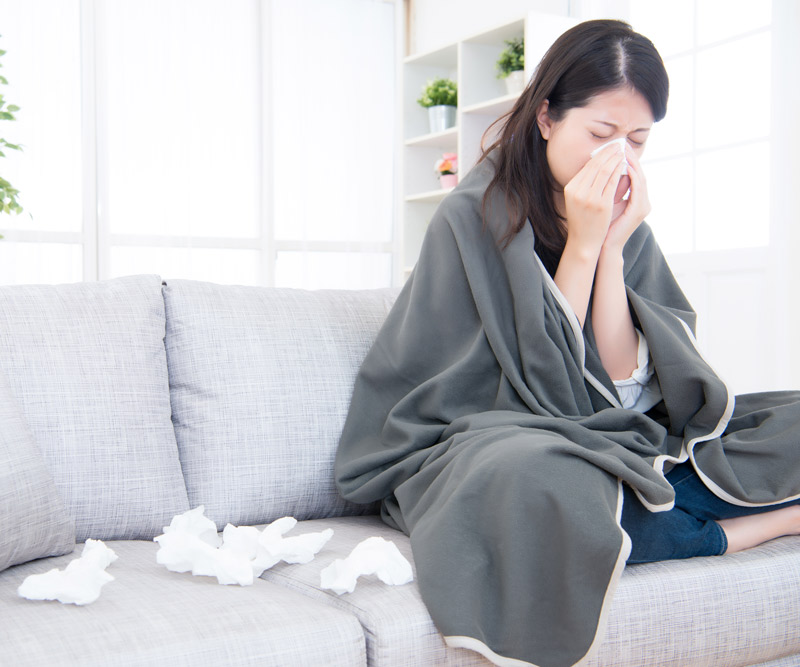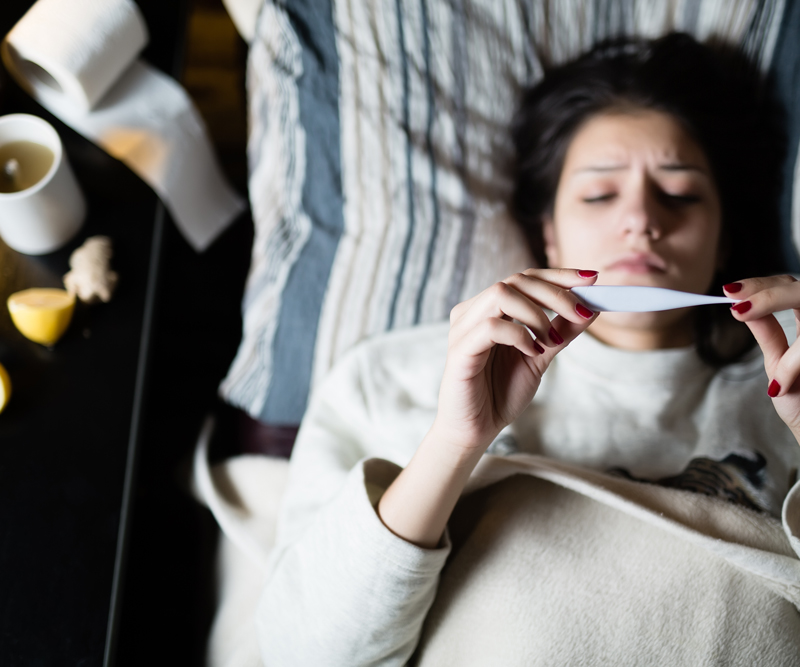
What's the best (and easiest) way to stop the spread of the flu? Read below for tips to stay well, plus what to do if you do get sick.
Do You Know … The Best Ways to Prevent the Flu?
The best way to avoid getting the flu is to get immunized each year.
The Centers for Disease Control and Prevention makes a flu vaccine each year based on the strains that are likely to be most prevalent that flu season.
By getting vaccinated, not only are you protecting yourself against dangerous diseases, you’re ensuring immunity throughout your home and neighborhood. This can protect infants, older adults and others who may be at higher risk of complications from vaccine-preventable diseases like the flu.

Keep in mind, however, that while the flu vaccine can help protect you from types A and B, there is no immunization for type C virus.
Regular hand-washing (and avoiding touching your face when your hands aren’t clean) will also help to reduce your risk of illness.
When done correctly, hand-washing can reduce the number of colds, flu and other infections by 50 percent.
A Note about Antibiotics
While antibiotics are effective against bacterial infections, they are not effective against viruses, such as colds or the flu.
Antibiotics work by blocking the metabolic pathways found in bacteria. Because viruses do not have their own metabolic pathways, antibiotics cannot have any effect on them.
When people take antibiotics for viral infections, they actually are doing more harm to their bodies than good. When antibiotics are prescribed by a doctor, they can aid in fighting bad bacteria that cause disease. However, antibiotics cannot discern between good and bad bacteria in a person's body, so when taken, they may also destroy the good bacteria that aid in digestion, help fight infection and keep a person healthy.
To prevent antibiotic resistance, don’t take antibiotics if they aren’t necessary.
Do You Know … What to Do if You Get the Flu?
If you believe you have the flu, stay home and avoid contact with other people as much as possible. This will help prevent the spread of the virus.
There are antiviral medications that may help to shorten the duration of the flu illness. Depending on your own health history, your doctor may want to have you start these antiviral medications if you become ill with the flu.

If you aren’t sure, you might want to call and get advice if you suspect the flu. The antivirals work best in the first couple of days, so don’t wait too long to call and ask.
Most people experience a mild form of the flu and will begin to feel better after a few days of rest. Be sure to stay well hydrated by drinking plenty of water and other clear liquids.
However, seek immediate medical care if you experience any of the following symptoms:
- Difficulty breathing or shortness of breath.
- Purple or blue discoloration of the lips.
- Pain or pressure in the chest or abdomen.
- Sudden dizziness.
- Confusion.
- Severe or persistent vomiting.
- Seizures.
Also, if you experience flu-like symptoms that improve but then return with a fever and worse cough, see your medical provider.
Certain people, including young children, older adults, pregnant women and people with chronic medical conditions, are at higher risk of serious flu-related complications, including bacterial infection, pneumonia and sepsis.
If you are in a high-risk group and get the flu, contact your health care provider.
Want to take a closer examination of the flu and what causes it?
Was that sneeze the flu or cold coming? Here's how to spot the difference.
Published on: October 2, 2017




